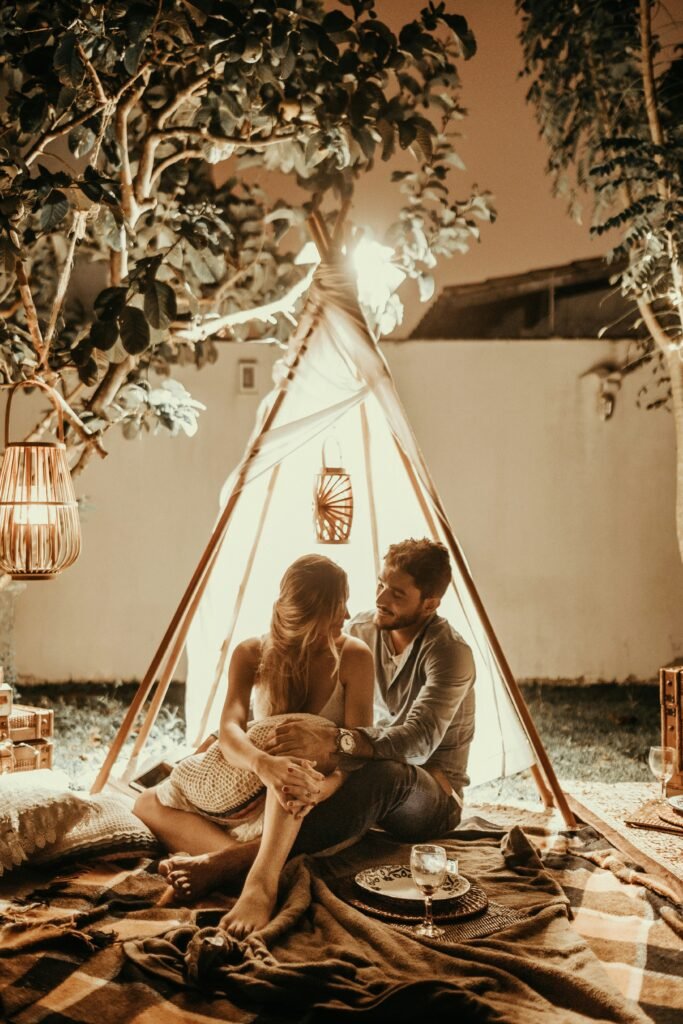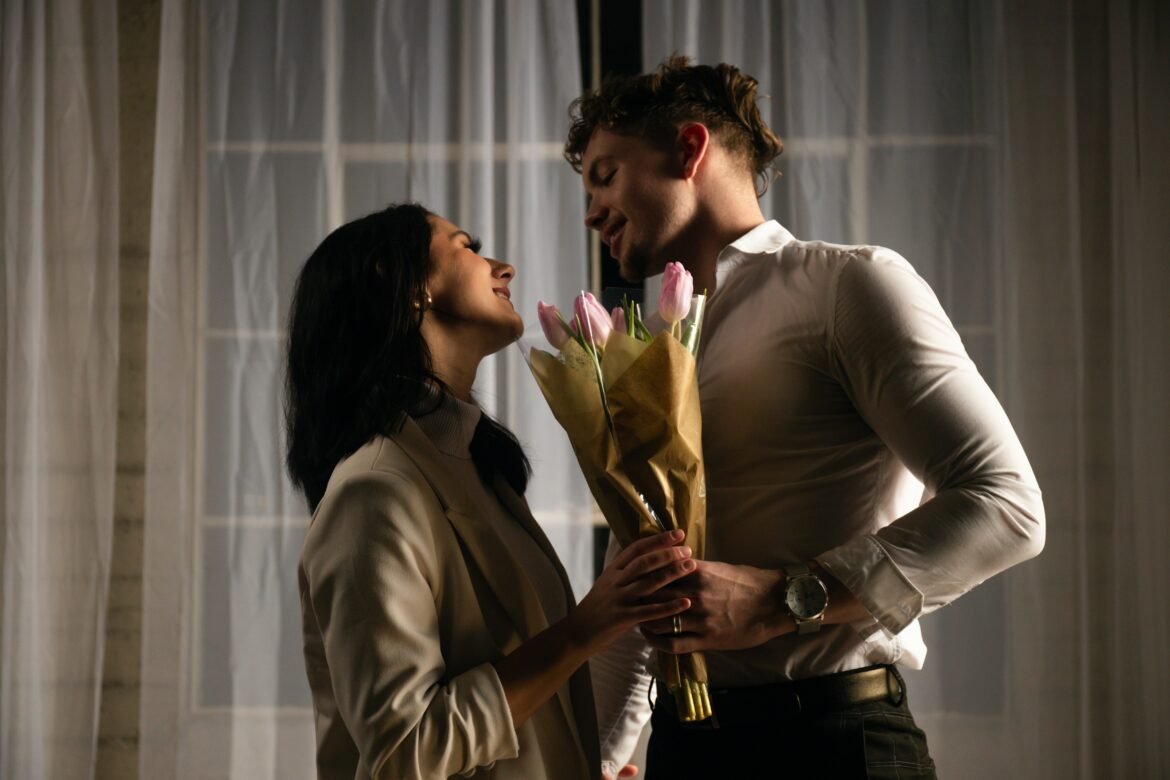When You’re in Love With Your Best Friend
That Tricky Space Between Friendship and Love
Imagine this: you’re sitting across the table from the person who knows you best. They’ve seen you cry over breakups, celebrated with you when you got that job, and know exactly how you take your coffee. And then, almost without warning, something shifts. That familiar laugh suddenly feels different. That hug lingers a second longer than usual. You catch yourself looking at them the way you swore you never would.
It’s one of the most exhilarating and terrifying feelings—realizing you might be in love with your best friend.
This isn’t the kind of romance you see in rom-coms, where strangers meet cute and sparks fly instantly. No, this is something much deeper. A friendship built over years suddenly starts to carry the weight of something more, and with it comes excitement, confusion, and the fear of what could happen if you cross that line.

Why It Feels So Complicated
Falling for a best friend is messy because there’s so much at stake. With a new person, rejection stings, but life goes on. With your best friend? A confession could either open the door to the love of your life—or shut the door on a friendship you can’t imagine losing.
That’s the part that keeps people stuck in silence. You replay every moment in your head: Did that smile mean something more? Did they brush my hand on purpose? Am I imagining this whole thing? It’s exhausting, but also kind of intoxicating.
The irony is that this kind of love already comes with the strongest foundation: trust, shared history, inside jokes, and an understanding of each other’s quirks. You’ve seen them at their worst—flu, heartbreak, stress tears—and you still want them. That’s real.
A Story I’ll Never Forget
A friend of mine, Emma, went through this exact situation. She’d been best friends with Jake for seven years. They did everything together—road trips, family holidays, lazy Sundays watching movies. To everyone else, they already looked like a couple, but neither of them admitted what was happening.
One day, Emma called me in tears. “I think I’m in love with him,” she whispered, half in awe, half in panic. She felt like she was standing at the edge of a cliff.
A few months later, they went on a spontaneous trip to the coast. Watching the sunset on an empty beach, Emma finally blurted out what had been sitting heavy on her heart. The silence that followed, she later told me, felt like the longest seconds of her life.
And then Jake smiled, took her hand, and admitted he’d been feeling the same way for years.
Today, they’re engaged. Their story isn’t perfect—they still fight, still annoy each other, still figure things out—but their love has the kind of depth that comes only when friendship is the foundation.
Why Loving a Best Friend Feels Different
There’s something unique about this kind of love. It’s not infatuation with a stranger’s charm or the excitement of getting to know someone new. It’s like seeing an old photograph in a new light. The picture hasn’t changed—you have.
People often describe it as a sense of “coming home.” Instead of dizzy butterflies, it feels like a deep breath, a recognition. Passion can still be there—stronger, even—but it’s grounded in comfort and authenticity.
That doesn’t mean it’s easy. Transitioning from friendship to romance can be awkward. Suddenly, hand-holding feels like a big deal. Kissing your best friend feels at once thrilling and terrifying. And then there’s the ripple effect—mutual friends might need time to adjust, family dynamics might shift, and you both may stumble over new boundaries.
But for many, the payoff is worth the risk. When friendship and romance combine, you often get the best of both worlds: someone who makes your heart race and also knows exactly how you like your pizza.
So What Do You Do?
If you’re in this situation, the first step is self-reflection. Ask yourself:
- Are these feelings genuine, or could they be coming from loneliness or comparison?
- Do I want a relationship with them, or do I just crave closeness?
- Am I ready for the possibility that things might change—good or bad?
Once you’re sure, you can start gently testing the waters. Sometimes that means dropping subtle hints, sometimes it’s about noticing how they respond when you lean in a little closer—physically or emotionally.
But eventually, honesty is the only way forward. Pick the right time—a private, calm moment where you won’t be rushed. Speak from your own perspective: “I’ve realized my feelings have changed, and I value our friendship too much to hide it from you.” That way, you’re being open without putting pressure on them.
And then—this is the hardest part—you have to let them respond in their own way and their own time.
Protecting the Friendship
No matter what, respect has to come first. The last thing you want is for your friend to feel tricked, pressured, or like the friendship was just a stepping stone. Make it clear that you value them no matter what.
Timing matters, too. Don’t confess right after their breakup, during a crisis, or in front of an audience. Create a safe space for both of you to be vulnerable.
And remember: even if the answer isn’t what you hope for, many friendships survive these conversations. Some even grow stronger because of the honesty.
Different Paths, Same Feelings
Not every friendship-to-love story looks the same. Some people take the direct route and have a heart-to-heart. Others let things shift slowly—more one-on-one time, more intentional closeness, a kiss that “just happened.”
In some cases, romance doesn’t work out, but the friendship remains. In others, it’s the beginning of the best relationship of your life. Both outcomes are valid, and neither erases the value of the bond you already share.
Taking Care of Yourself
Falling for your best friend can consume your thoughts. It’s easy to obsess over every detail, but it’s important to stay grounded. Practice self-care, lean on other friends, and remind yourself that your worth doesn’t depend on their answer.
If the feelings are overwhelming, journaling or even talking with a therapist can help you sort through them. And if you do confess, make sure you have support—because no matter the outcome, you’ll need someone in your corner.
Final Thoughts
Being in love with your best friend is one of the most vulnerable, complicated, and potentially beautiful experiences you can have. It’s scary because the risk is real—you might lose the comfort of the friendship you treasure. But it’s also powerful, because if it works, you end up with a relationship built on the strongest foundation there is: friendship.
At the end of the day, love is always a leap. Sometimes you soar, sometimes you stumble—but either way, being brave enough to admit your feelings is an act of honesty, courage, and hope.
Because maybe, just maybe, the love you’ve been looking for has been sitting right across from you all along.

Frequently Asked Questions For When You’re in Love With Your Best Friend
How can I tell if I’m really in love or just confusing friendship with attraction?
Romantic love typically includes physical attraction, desire for exclusivity, and imagining a future together—elements that may be absent in platonic friendship. Try imagining your friend dating someone else; intense jealousy often indicates romantic feelings.
Should I tell my best friend I have feelings for them?
This depends on several factors, including your friendship’s strength, their relationship status, and your ability to accept either outcome. If you decide to share your feelings, do so without expectations and emphasize valuing the friendship regardless.
What are the signs my best friend might have feelings for me too?
Look for increased physical contact, jealousy when you mention dating others, making excuses to spend time alone together, and friends commenting on your chemistry. Remember that these can also be signs of a close friendship.
Won’t telling them ruin our friendship?
While there’s always risk, many friendships survive this conversation even when feelings aren’t mutual. The key is approaching the discussion with respect and without pressure. Sometimes temporary awkwardness leads to deeper understanding.
How long should I wait before telling them?
There’s no perfect timeline, but ensure your feelings are consistent over time rather than a momentary attraction. Avoid confessing during either person’s vulnerable periods, such as immediately after breakups.
What if they don’t feel the same way?
Prepare yourself for this possibility by deciding beforehand how you’ll respond. Allow yourself to feel disappointed while reaffirming the friendship’s value. Give both yourself and your friend some space if needed.
Can a friendship recover if romantic feelings aren’t mutual?
Absolutely. Many friendships not only recover but strengthen after honest conversations about feelings. The key factors are mutual respect, clear communication about boundaries, and patience during the adjustment period.
How should I approach the conversation?
Choose a private, relaxed setting without time constraints. Start by affirming the friendship’s importance, use “I” statements about your feelings, avoid pressure tactics, and give them space to respond honestly.
What if we try dating and it doesn’t work out?
Discuss this possibility before transitioning to dating. Many friends-turned-couples establish guidelines for how they’ll protect the friendship if romance doesn’t work. Having this conversation early demonstrates mutual commitment to preserving your bond.
How do I handle mutual friends if we start dating?
Be mindful that your relationship change affects your social circle. Avoid excessive PDA in group settings initially, and maintain individual friendships rather than always operating as a couple. Give friends time to adjust to the new dynamic.
Is it normal to feel awkward during the transition from friends to more?
Completely normal! Even when feelings are mutual, there’s often an adjustment period as you both learn to relate in new ways. This awkwardness usually fades as you establish new patterns together.
What’s the success rate of friendships turning into relationships?
Research suggests relationships that begin as friendships often have higher satisfaction and longevity rates than those starting with dating. The foundation of trust and knowledge of each other creates a solid basis for romantic connection.

